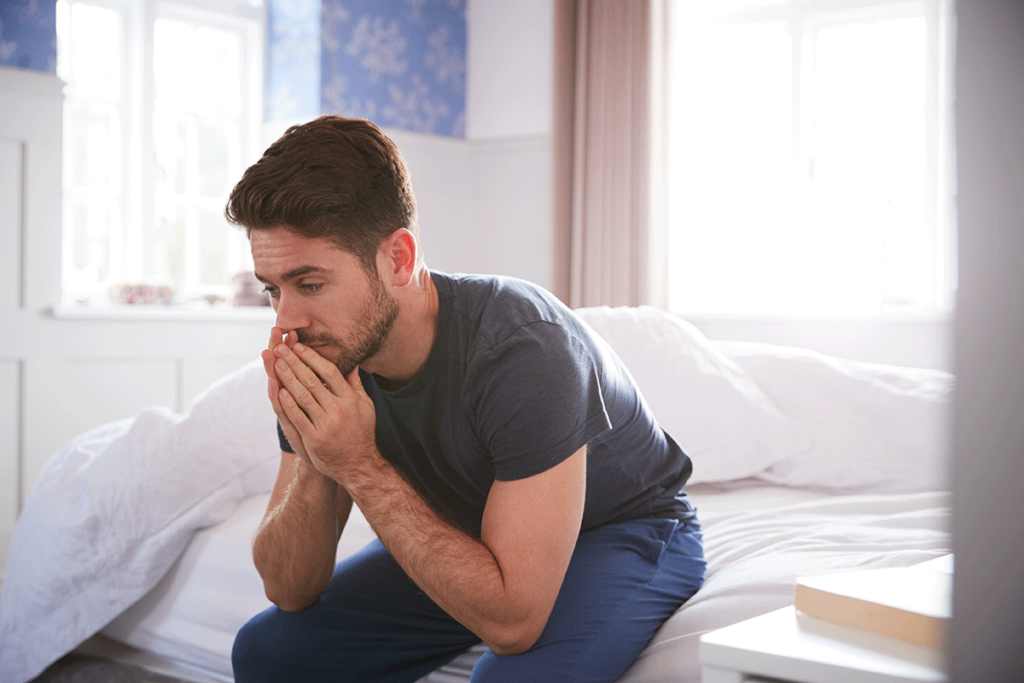Successful recovery from substance use is intentional, not accidental. Central to preventing relapse is a well-crafted recovery plan, which begins by learning to identify potential triggers. Relapse prevention therapy offers professional support for building a strong, lasting recovery.
Woodland Recovery Center is a substance use treatment center that offers both inpatient and outpatient services. We provide education on relapse triggers and aftercare support to help the lessons learned in treatment continue to guide your steps in recovery. Call 662.222.2989 today to learn more about our addiction therapy programs at Woodland Recovery Center.
What Is a Relapse Trigger?
A trigger is anything that creates a strong physical, mental, or emotional response. Triggers exist in many different fields of mental and behavioral health. A person might experience triggers related to trauma, disordered eating, or anxiety attacks.
You might be wondering: What is a relapse trigger, and how does it differ from other types of triggers? In addiction recovery, the term relapse triggers is used to describe the people, places, things, emotions, or situations that can produce the desire to use substances. Relapse triggers are highly individual, and they’re often linked to their past experiences with substance use.
Most Common Triggers for Relapse to Be Aware of
When confronted with a trigger, you might experience an increased relapse heart rate and breathing rate, trembling, hot flashes, or a general feeling of overwhelm. No two individuals have the exact same relapse triggers, but encountering certain situations and items may be likely to remind you of substance use or wanting to use substances.
People
The people you were with during active addiction can significantly trigger relapse, especially if those relationships were based on substance use. Family and close relationships can also trigger relapse. If you used substances to manage stress or conflict, stepping back into those dynamics after treatment can easily trigger you.
Places
The places you associate with substance use can be highly triggering. Sometimes, this can be anticipated, like when you return to a hometown for a visit. Other times, a relapse trigger can come out of the blue. For example, driving by a bar might suddenly produce an overwhelming desire for a drink.
Items
Physical objects, images, and feelings that trigger you may be hard to avoid because you might come across them unexpectedly.
Common triggers in this category include:
- Seeing drug paraphernalia
- Depictions of drug use or drinking on television
- Alcohol advertisements
- Specific emotions like anger, sadness, and anxiety
A scene from a movie, an alcohol advertisement, or the chair in your home you associate with substance use can all trigger the urge to relapse.
Tips for Identifying Relapse Triggers
Identifying relapse triggers takes some work, but it can make you prepared to handle these feelings when they come up.
Take time to write out a list of the people, places, things, and anything else that might be a relapse trigger for relapse. Having a list written down helps you prepare for when thoughts of relapse might come up.
Have a plan in place for what to do when you feel triggered. Common options include:
- Attend a recovery meeting
- Call a trusted friend
- Journal
- Meditate
- Exercise
Connecting with others and physically engaging in increased activity are two of the most effective ways to overcome feeling triggered without relapsing.
Strategies to Prevent Triggers for Relapse
Preventing relapse triggers involves proactive steps to create a supportive recovery environment. Recognizing and anticipating triggers enables you to minimize their impact. Here are some strategies:
- Stay involved in support networks – Regularly attend meetings or groups where you can share experiences and hear from others in recovery.
- Build healthy relationships – Surround yourself with people who understand and support your recovery journey.
- Create new routines – Structure your day with activities that promote health and well-being, such as exercise or hobbies.
- Avoid high-risk situations – Keep your distance from people, places, and things that are linked to past substance use.
- Practice stress-reduction techniques – Engage in relaxing activities like yoga or deep breathing to manage stress.
These strategies help you to maintain focus on your recovery goals and to build resilience against setbacks.
Reach Out to Woodland Recovery Center to Start a Plan to Avoid Relapse
Effectively managing relapse triggers requires education and strategic planning. Understanding your emotions and their causes enhances your ability to prevent relapse. At Woodland Recovery Center, we assist patients in crafting plans for success post-treatment. If you need support with relapse triggers, we’re here to help. Contact us online or call 662.222.2989 today to learn more about getting help with maintaining recovery at Woodland Recovery Center.



